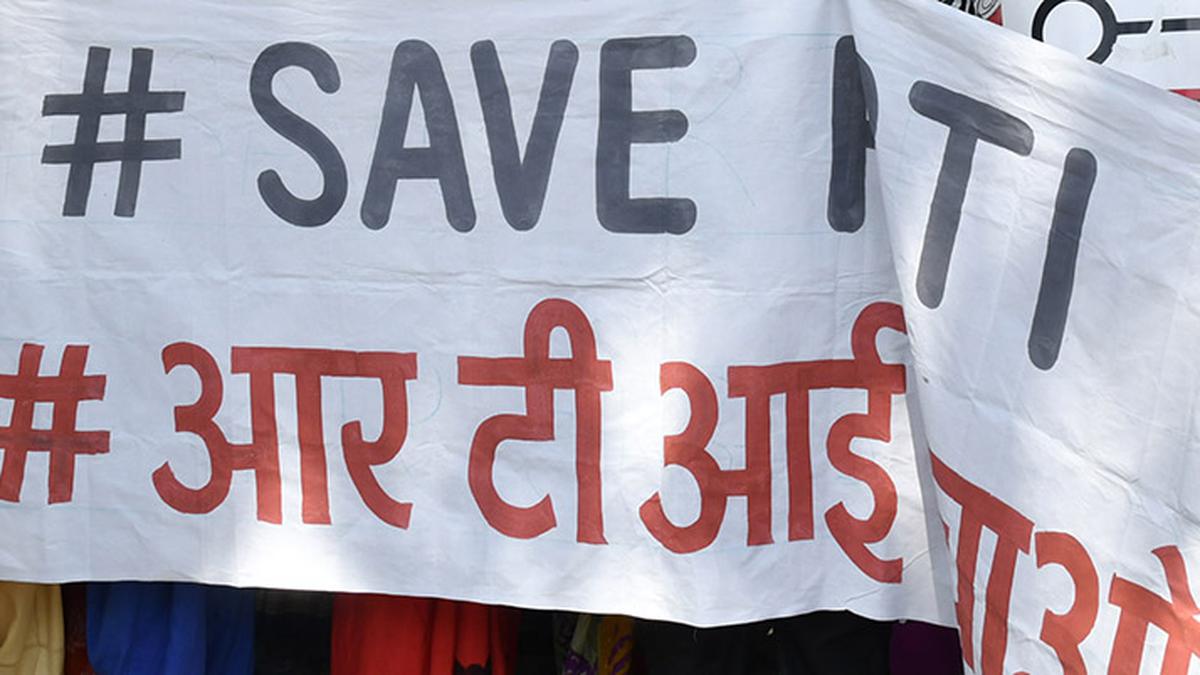
Why are India’s Information Commission posts vacant? | Explained Premium
The Hindu
The Supreme Court recently cautioned that the RTI Act would be reduced to a dead letter if Information Commissions are not staffed, as pendency of cases continues to rise. We take a look at pendencies and why they persist.
The story so far: In 2005, the Right to Information Act painted a revolutionary picture: empowered citizens holding a fundamental democratic right to know how their governments use money and power. It had the potential to “change the contours of democratic governance in India,” activist Aruna Roy wrote. Now, the legislation risks being reduced to a “dead letter” if governments do not fill up vacancies in the 26 Information Commission (IC) offices, the Supreme Court cautioned the government earlier this month.
India’s RTI Act, cultivated to protect people’s rights and hold the government accountable, has fallen into redundancy, a petition before the Supreme Court says. Information Commissions do not have enough officials to respond to cases as they pile up, festering into huge backlogs, delays, secrecy and inevitably impeding a citizen’s right to hold the state accountable. This regime of transparency now lies clogged, with many bodies no longer accepting RTI requests, the petitioners added.
The Central Information Commission (CIC), the figurative custodian of RTI’s spirit, is functioning without a Chief Commissioner. Further, four Information Commissioners at the CIC are set to retire on November 6, creating a gap that will leave the CIC defunct for the first time since the RTI Act was passed, co-petitioner Anjali Bhardwaj wrote on X, saying it would be a “gross violation of peoples right to information.”
Similar concerns have been raised by activists over the years; it was revived recently when the Act was amended for the second time in five years with the passing of the Digital Personal Data Protection Bill. A blanket ban on disclosing “personal information”, ushered in with the 2023 Amendment, would further pave the way to powerful officials evading accountability, the National Campaign for Peoples’ Right to Information (NCPRI) warned earlier this year. Others argue that similar bureaucratic bottlenecks, developed under the heedless gaze of ICs, have undone the promise of RTI.
India has about 25 State Information Commissions (SICs) and one Central Information Commission (CIC). The RTI Act mandates that each Commission have one Chief Information Commissioner, and up to 10 Information Commissioners. The number of information commissioners would depend upon the workload, “as may be deemed necessary”, the Supreme Court said in 2019 while ruling on a PIL about defunct ICs.
There is a huge chasm between sanctioned posts and realised posts: ICs in India operate at a reduced capacity or without a Chief Information Commissioner and at times are defunct, according to the NGO Satark Nagarik Sangathan. In a 2022 report, the NGO assessed information on the number of commissioners, the status of appeals and complaints sitting before ICs, and the quantum of penalties. Two commissions (Jharkhand and Tripura) were defunct between 2021 and 2022.
“For the last 29 months, people seeking information from public authorities under the jurisdiction of the Jharkhand SIC have had no recourse to the independent appellate mechanism prescribed under the RTI Act if their right to information is violated,” the report stated. At least six ICs were functioning without a chief officer. Several others did not have the required staff to address a rising number of appeals and complaints; Maharashtra saw a 100% increase in backlog in three years, and it would take approximately five years and three months for the SIC to dispose of these cases. The Central Information Commission, had it appointed three commissioners, might have made some headway with its 26,800+ caseload.





















 Run 3 Space | Play Space Running Game
Run 3 Space | Play Space Running Game Traffic Jam 3D | Online Racing Game
Traffic Jam 3D | Online Racing Game Duck Hunt | Play Old Classic Game
Duck Hunt | Play Old Classic Game











